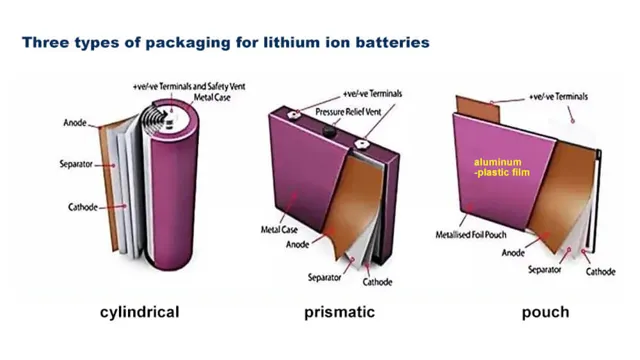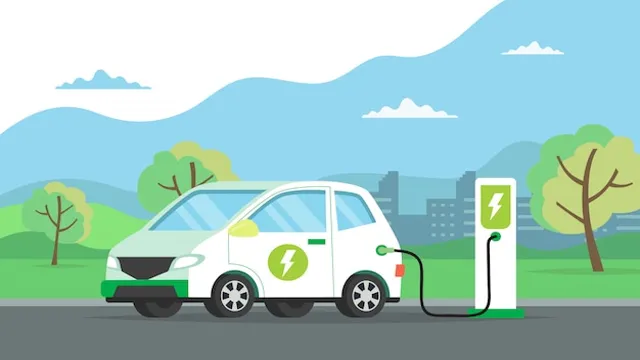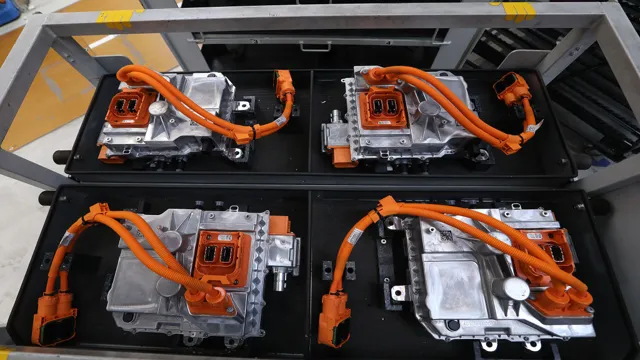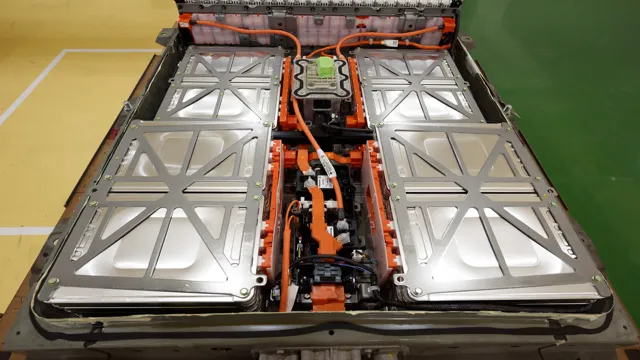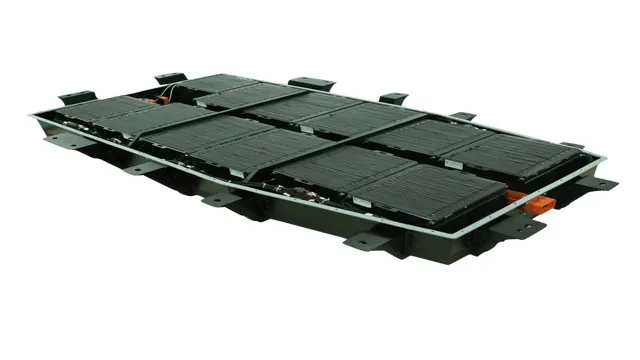Electric Car Battery Types: Exploring the Pros and Cons of Cylindrical, Pouch, and Prismatic Batteries
Electric cars are becoming increasingly popular as more people prioritize sustainability and energy efficiency. However, choosing the best electric car battery type can be confusing, especially if you’re not familiar with the pros and cons of different options. The most common types of electric car batteries are cylindrical, pouch, and prismatic, and each has its own unique features that make it suitable for specific needs.
If you’re wondering which battery type is right for you, you’re not alone. With so many options available, it can be challenging to navigate the world of electric car batteries. Fortunately, understanding the differences between cylindrical, pouch, and prismatic batteries can help you make an informed decision that meets your needs and budget.
Since each type has its own strengths and weaknesses, it’s essential to explore your options and consider the factors that matter most to you. By doing so, you can be confident in your choice and enjoy all the benefits of driving an electric car, such as lower emissions and reduced fuel costs. So, let’s dive into the world of electric car batteries, so you can be well-informed when making your decision.
Overview of Electric Car Battery Types
Electric vehicles are becoming more popular, and with that, the importance of knowing about electric car battery types grows as well. There are three main types of batteries commonly used in electric cars: cylindrical, pouch, and prismatic. The cylindrical type, also known as 18650, was popularized by Tesla and is made up of long, thin cells.
Pouch batteries, as the name suggests, are flat, flexible, and wrapped in a pouch. They are known for their high energy density and can be found in some popular EVs. Finally, prismatic batteries have a rectangular shape, and their production cost is lower than that of pouch or cylindrical batteries.
The type of electric car battery chosen depends on various factors such as cost, energy density, and volume efficiency. That said, the ultimate goal is to balance these factors to optimize performance and affordability for consumers.
Cylindrical Batteries: Pros and Cons
When it comes to electric car batteries, there are three main types: cylindrical, prismatic, and pouch. Cylindrical batteries have been the traditional choice for electric cars and are still widely used today. They are small, lightweight, and easy to stack, making them ideal for electric cars that need a lot of power in a compact space.
Cylindrical batteries are also considered to be safer than other battery types because they are made using a sturdy metal casing that can withstand high levels of heat and pressure without bursting. However, one downside of cylindrical batteries is that they can be more expensive to produce than other types and may require more maintenance over time. Overall, cylindrical batteries are a reliable and efficient choice for electric cars, but it’s important to weigh the pros and cons before making a final decision.
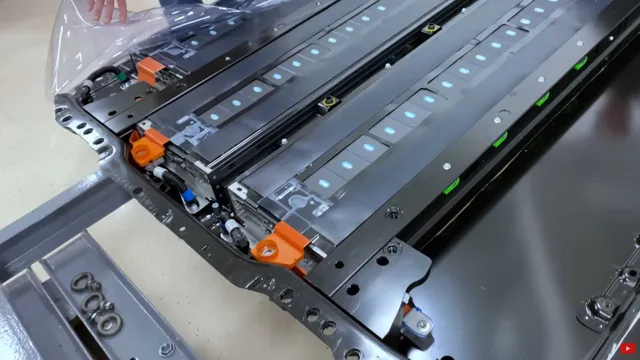
Pouch Batteries: Pros and Cons
Pouch batteries have emerged as an alternative choice in the electric car market, competing with other battery types such as lithium-ion and nickel-metal hydride. Pouch batteries are named after their packaging, which consists of a flexible, flat pouch. One of the significant advantages of pouch batteries is their lightweight compared to other battery types.
This lightweight property of pouch batteries gives electric cars the range and speed that customers desire while providing improved fuel efficiency. However, there are downsides to using pouch batteries. Pouch batteries’ high-energy density generates heat during the charging and discharging process, creating a considerable risk of thermal runaway and fire.
Thus, maintaining stable conditions during charging and discharging conditions is crucial to avoiding these issues. Furthermore, pouch batteries are still relatively new to the electric car market and are still undergoing research and development to achieve improved capacities, stability and safety. Overall, while pouch batteries have the potential to accommodate electric vehicles’ power demands, they still have room for improvement to become the go-to-choice in the market.
Prismatic Batteries: Pros and Cons
Electric car battery types When it comes to electric vehicles, the battery is one of the most important components. There are several types of electric car batteries available, each with its own set of advantages and disadvantages. One such battery is the prismatic battery.
These batteries are made up of rectangular or square cells that are stacked together, much like building blocks. One of the main advantages of prismatic batteries is that they are more compact compared to other types of batteries. This makes them a great option for electric cars, as they can be fitted into smaller spaces.
However, they do have their limitations. Prismatic batteries are more expensive than other types of batteries, which can make them less accessible to consumers. Additionally, they are prone to thermal runaway, which can cause them to overheat and become unstable.
Despite these drawbacks, prismatic batteries are still a popular choice for electric car manufacturers due to their compact size and high energy density.
Factors to Consider When Choosing a Battery Type
When looking at electric car batteries, there are three main types to choose from: cylindrical, pouch, and prismatic. Each has its own advantages and disadvantages, so it’s important to consider a few factors before making a decision. One major factor is energy efficiency.
Cylindrical batteries tend to be more efficient in terms of power output, while prismatic batteries are more efficient in terms of space usage. Another important factor is durability. Pouch batteries are known for being lightweight and flexible, but they are also more prone to punctures and leaks.
Lastly, cost is always a consideration. Cylindrical batteries are usually the most affordable option, while prismatic batteries can be the most expensive. Overall, it’s important to weigh the pros and cons of each battery type and consider your specific needs before making a decision.
Battery Size and Capacity
When choosing a battery type, one crucial factor to consider is battery size and capacity. It is essential to understand the power requirements of the device you plan to power before selecting a battery. If you choose a battery with a smaller capacity than what the device requires, it might not last long enough to get the job done.
On the other hand, a battery with a larger capacity can provide extended run time but can also add extra weight and bulk to the device. It’s all about finding the right balance. A great analogy to understand is that choosing a battery is like finding shoes that fit perfectly.
You don’t want them to be too small, where your toes are crammed in, nor too large, where your feet slip out. Finding the right fit will ensure the battery can power the device efficiently and effectively. Remember, choosing the right size and capacity is essential to keep your device running smoothly and efficiently.
Cost and Availability
When selecting a battery type, cost and availability are important factors to consider. Different battery chemistries, sizes, and brands vary in price and availability, so it’s crucial to assess your needs beforehand. If cost is your main concern, lead-acid batteries may be a feasible option for you, while lithium-ion batteries are more expensive but offer increased energy density and longer lifespans.
When it comes to availability, be aware that newer and less common battery types may be more difficult to obtain or service. It’s worth researching the availability of compatible chargers, replacement parts, and repair services before purchasing a battery. Additionally, consider the cost of ownership over time, as a lower upfront cost may ultimately be negated by frequent replacements or repairs.
Ultimately, weighing the cost and availability of different battery types can ensure you choose the one best suited to your needs and budget.
Performance and Efficiency
When choosing a battery type for your device, there are several factors to consider, but one of the most important ones is the performance and efficiency of the battery. A battery’s performance refers to how long it can power your device before it needs to be recharged or replaced. Meanwhile, efficiency refers to how much power the battery can deliver for a given amount of energy consumed.
Both performance and efficiency are critical for your device’s overall functionality, as they can affect how long you can use your device and how much power it drains. Lithium-ion batteries are generally considered to be the best for both performance and efficiency, but it’s always best to do your research and compare different battery types to find the one that best meets your needs.
Conclusion: Which Battery Type is Best for Your Electric Car?
In the world of electric cars, the three main battery types are cylindrical, pouch, and prismatic. While each has its own advantages and challenges, they all ultimately provide the power that propels us forward towards a more sustainable future. So the next time you’re cruising down the road in your electric ride, remember that it’s the battery that’s the true hero of the journey- no matter what shape or size it may take.
Keep on charging, folks!”
FAQs
What are the different types of electric car batteries?
There are three main types of electric car batteries: cylindrical, pouch, and prismatic.
What is a cylindrical battery?
A cylindrical battery is a type of electric car battery that is shaped like a tube. It is commonly used in electric cars such as the Tesla Model S.
What is a pouch battery?
A pouch battery is a type of electric car battery that is thin and flexible. It is often used in electric cars because it can be easily molded to fit into small spaces.
What is a prismatic battery?
A prismatic battery is a type of electric car battery that is rectangular in shape. It is often used in electric cars because it is more space-efficient than cylindrical batteries.
